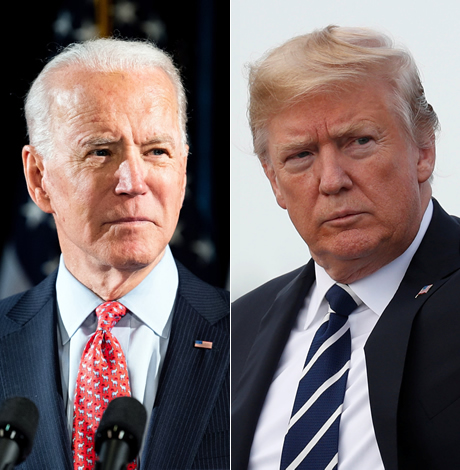National
Could 2010 be ‘Year of the Gay?’
Large number of out candidates running for office

David Cicilline, the gay mayor of Providence, R.I., is seeking a U.S. House seat in this year’s election. (Photo courtesy of Cicilline Committee)
The unprecedented number of LGBT candidates expected to seek political office this November could be setting up 2010 as the “Year of the Gay.”
A number of gay candidates are running for high-profile office this year. In addition to the three openly gay lawmakers in the U.S. House seeking re-election, several non-incumbent gay candidates are running for Congress.
Steve Pougnet, the gay mayor of Palm Springs, Calif., is seeking a House seat and David Cicilline, the gay mayor of Providence, R.I., is also running for Congress. Another gay candidate, Ed Potosnak, is running to represent New Jersey in the U.S. House. All three men are campaigning as Democrats.
Gay candidates are also seeking election to prominent statewide offices. In Massachusetts, Richard Tisei, a state senator, is in contention to become the Republican candidate for lieutenant governor. In Connecticut, Kevin Lembo, a health care advocate, is seeking the Democratic nomination to become lieutenant governor.
Additionally, several LGBT people are seeking election or re-election in races at the local level. Notable candidates include Kathy Webb, a lesbian who’s running for re-election to the Arkansas State House; Jolie Justus, a lesbian who’s running for re-election to the Missouri State Senate; and Heather Mizeur, a lesbian who’s running for re-election to the Maryland State House.
The Gay & Lesbian Victory Fund, which backs qualified LGBT candidates for political office, has endorsed for the November election 68 candidates for federal and local races. That’s the highest number of candidates the organization has ever endorsed at this point prior to a November election.
Denis Dison, a spokesperson for the organization, projected the Victory Fund will endorse at least 112 candidates by the time the general election arrives. It would be more candidates than the organization has ever endorsed for a general election.
“When people see someone like [lesbian] Annise Parker win election as mayor of Houston, they question their assumptions about what’s possible, and I think that when people see other LGBT candidates succeed, they believe they can they can do it, too,” Dison said.
The potential for the election of so many gay candidates to office could make 2010 a milestone in terms of visibility for LGBT officials. Such a change would echo a political phenomenon from 1992, which became known as the “Year of the Woman.” At the time, Democratic nominee Bill Clinton’s victory was accompanied by the election of four female Democrats to the U.S. Senate.
Three of those women still serve in the Senate today: Sens. Dianne Feinstein (D-Calif.), Barbara Boxer (D-Calif.) and Patty Murray (D-Wash.). Carol Moseley Braun, a presidential candidate in 2004, was also elected to represent Illinois in the U.S. Senate. Never before had four women been elected to the U.S. Senate in one election.
Dan Pinello, a gay government professor at the City University of New York, said the 1992 election’s outcome was the result of greater attention paid to feminist issues such as the Equal Rights Amendment and the Anita Hill hearings on Capitol Hill.
“Maybe the same thing is happening now in the LGBT community, given what’s occurred in the last decade or so around the issue, for example, of relationship recognition,” he said. “So there may be a correlation there in terms of there being events that spark attention to a particular community, and then, a decade or so later, it’s recognized enough to have members of that community be acknowledged publicly through election to public office in substantial numbers.”
Despite this potential for gay wins, Pinello said even if three LGBT non-incumbent candidates were elected to Congress, it wouldn’t yet proportionately reflect the LGBT population if, as some national exit polling data indicates, around 4 percent of American voters self-identify as lesbian or gay.
“Thus, in order to increase the openly lesbian and gay membership of Congress so that it would be comparable to the proportion of the population that is gay, you’d need about 18 more members, or an additional 600 percent,” he said.
Pinello was skeptical, though, whether wins for LGBT candidates seeking office in Congress this November should be considered substantial. He said a greater number of candidates would be necessary to make representation more closely reflect the American public.
“If there were like eight or 10 out there, and 435 total seats in the House, that would be notable,” he said. “That would be a dramatic shift, but I don’t know that anything short of that would be.”
Nonetheless, Pinello said every additional LGBT person elected to office would be a representational win, and called having known LGBT candidates running for office “a substantial statement.”
Noting the lack of LGBT representation in public offices throughout the country, Dison said LGBT people have a “long way to go” toward achieving representation in elected office, even if 2010 brings significant success.
“There are over half a million elected offices in the country and only 470 right now are filled with openly LGBT persons,” he said. “We’re still at the beginning of this effort to have our voices heard in government.”
But Dison said with so many LGBT candidates seeking office, 2010 could bring a surge in LGBT representation and predicted that a majority of Victory Fund-endorsed candidates would be successful in their races.
“Our win rate has fluctuated sort of between 65 and 75 percent over the last five years,” he said. “If that tradition holds, we’ll see roughly 70 percent.”
Michael Mitchell, executive director of the National Stonewall Democrats, said his organization intends to help LGBT candidates win election at the federal level as part of their overall plan to help Democrats win races this year.
“There are some great gay candidates out there — some who are already in, obviously, some who are running,” he said. “We are in the process of fine tuning our election plan and we’re going to be launching that very, very soon in the next couple weeks.”
Mitchell said he’s planning a coordinated campaign with an online presence intended to engage people across the country, using a model similar to what was used for the election of Parker as Houston mayor.
“We had folks from all across the country calling with Stonewall folks from Texas, and we were responsible for about 10,000 calls in one day,” Mitchell said. “We want to do similar things for the candidates that we are focused on, and I’m sure that some of those LGBT candidates will be included in our races.”
Dison said so many wins for LGBT candidates would benefit LGBT Americans because it would help ensure the community’s voice is heard.
“When people are able to speak from an authentic place as an LGBT person, it really changes the debate in the rooms where the decisions are made on things that affect our lives,” Dison said.

Texas state Rep. James Talarico won a hard-fought primary Tuesday to become the state’s Democratic nominee for U.S. Senate, defeating U.S. Rep. Jasmine Crockett in one of the year’s most closely watched and competitive Democratic contests.
Talarico, a Presbyterian seminarian and three-term lawmaker from Round Rock, was declared the winner by the Associated Press early Wednesday morning after a closely tracked vote count that drew national attention.
“Tonight, the people of our state gave this country a little bit of hope,” Talarico told the AP. “And a little bit of hope is a dangerous thing.”
With 52.8% of the vote to Crockett’s 45.9%, Talarico secured the nomination outright, avoiding a runoff and capping months of sharp contrasts between the two candidates over strategy, messaging, and how best to compete statewide in Texas. Democrats hope the competitive primary — and the relatively narrow margin — signals growing momentum in a state that has not elected a Democrat to the U.S. Senate since 1988.
Talarico has long expressed support for the LGBTQ community, a position he highlights prominently on his campaign website. Under the “Issues” section, he directly addresses assumptions that might arise from his faith and background as a seminarian in a deeply conservative state.
“My faith in Jesus leads me to reject Christian Nationalism and commit myself to the project of democracy,” his website reads. “Because that’s the promise of America: a democracy where every person and every family — regardless of religion, race, gender, sexual orientation, or any other difference between us — can truly be free and live up to their full potential.”
Crockett struck a conciliatory tone following her defeat, emphasizing party unity ahead of November.
“This morning I called James and congratulated him on becoming the Senate nominee,” Crockett told Politico. “Texas is primed to turn blue and we must remain united because this is bigger than any one person. This is about the future of all 30 million Texans and getting America back on track.”
Talarico also drew national attention earlier in the race when “Late Show” host Stephen Colbert said he was initially unable to air an interview with the state legislator due to potential FCC concerns involving CBS. The episode sparked a broader political debate.
Brendan Carr, chair of the Federal Communications Commission, appointed by President Donald Trump, told reporters the controversy was a “hoax,” though he also acknowledged Talarico’s ability to harness the moment to build support as an underdog candidate. The interview was later released online and garnered millions of views, boosting Talarico’s national profile.
In November, Talarico will face the winner of the Republican primary between incumbent Sen. John Cornyn and Texas Attorney General Ken Paxton, who have been locked in a bruising GOP contest. Rep. Wesley Hunt was also in the Republican primary field. The GOP race is expected to head to a May runoff.
In a joint statement, Senate Minority Leader Chuck Schumer and Democratic Senatorial Campaign Committee Chair Kirsten Gillibrand praised Talarico’s victory and framed him as a candidate capable of broad appeal.
“As an eighth-generation Texan, former middle school teacher, and Presbyterian seminarian, James will be a fighter for Texans from all walks of life and of all political stripes,” they said. “In November, Texans will elect a champion for working people: James Talarico.”
National
Peter Thiel’s expanding power — and his overlap with Jeffrey Epstein
Gay billionaire’s name appears 2,200 times in files, but no criminality alleged

There are few figures in modern politics whose reach extends across Silicon Valley, Wall Street, and Washington, D.C., as Peter Thiel’s.
A billionaire venture capitalist, Thiel built his fortune at the dawn of the internet age and has since positioned himself at the highest levels of U.S. technology, finance, and national defense infrastructure. He is best known as a co-founder of PayPal, an early investor in Facebook, and the co-founder of Palantir Technologies — a data analytics firm that maintains significant contracts with U.S., U.K., and Israeli defense and intelligence agencies.
Over the last two decades, Thiel has also built an interconnected network of investment vehicles — Clarium Capital, Founders Fund, Thiel Capital, Valar Ventures, and Mithril Capital — giving him influence over emerging technologies, political candidates, and ideological movements aligned with his worldview. Through these firms, Thiel has backed companies in artificial intelligence, defense technology, biotech, cryptocurrency, and financial services, often positioning himself early in sectors that later became central to public policy debates.
Born in Frankfurt, West Germany, in 1967, Thiel immigrated to the United States as an infant. He later attended Stanford University, earning a degree in philosophy before graduating from Stanford Law School in 1992. As an undergraduate, he founded The Stanford Review, a conservative student publication that opposed what it described as campus “political correctness.” The paper became a platform for combative and contrarian arguments that previewed themes Thiel would revisit in later essays and speeches about elite institutions, democracy, and technological stagnation.
Thiel’s professional ascent coincided with the explosive growth of the dot-com era. In 1998, he co-founded PayPal, helping pioneer digital payment systems that would become foundational to online commerce. When the company was sold to eBay in 2002 for $1.5 billion, Thiel emerged a multimillionaire and part of what would later be known as the “PayPal Mafia” — a loose but influential network of founders and early employees who went on to launch or invest in some of Silicon Valley’s most dominant firms.
In 2004, Thiel made one of the most consequential investments of his career, providing $500,000 in seed funding to Facebook, then a fledgling social network founded by Mark Zuckerberg. He became the company’s first outside investor and later served on its board. That early bet proved extraordinarily lucrative and cemented Thiel’s status as a major venture capitalist with a reputation for identifying transformative platforms before they reached scale.
The same year, he co-founded Palantir Technologies. Initially backed in part by In-Q-Tel, the CIA’s venture capital arm, Palantir developed software — including its Gotham platform — designed to help defense, intelligence, and law enforcement agencies integrate and analyze massive datasets. The company’s tools allow users to map relationships, identify patterns, and visualize complex networks across financial records, communications data, and other digital trails.
Over time, Palantir secured billions of dollars in public-sector contracts. It has worked with the U.S. Department of Defense, Immigration and Customs Enforcement, the Centers for Disease Control and Prevention, and allied governments abroad. Public reporting has documented that its global government contracts exceed $1.9 billion, including agreements with Israeli defense entities — relationships that reportedly expanded following the Oct. 7 attacks in Israel. Critics have raised concerns about civil liberties and surveillance, while supporters argue the company provides essential national security tools.
By the mid-2000s, Thiel was no longer simply a wealthy entrepreneur. He was a financier operating at the intersection of capital, advanced technology, and government — with investments embedded in some of the country’s most sensitive security systems. His political giving would later extend that influence further, including support for candidates aligned with his populist and nationalist leanings– notably Donald Trump in 2016.
As his wealth and influence expanded, so too did his proximity to other powerful — and, in some cases, controversial — figures in global finance.
Among them was Jeffrey Epstein.
Thiel’s name appears more than 2,200 times in documents released so far by the U.S. Department of Justice related to Epstein. A name appearing in legal filings does not, by itself, indicate wrongdoing. However, the extensive references illustrate that Epstein’s social and financial network intersected with elite figures in technology, academia, politics, and finance — including individuals connected to Thiel’s business and philanthropic circles.
Epstein’s legal troubles became public in 2005, when police in Palm Beach, Fla., investigated allegations that he had sexually abused a minor. In 2008, he pleaded guilty in state court to soliciting prostitution from a minor under a plea agreement that was widely criticized as unusually lenient. He served 13 months in county jail with work-release privileges and was required to register as a sex offender. Comparable federal charges can carry significantly longer sentences.
Despite that conviction, Epstein continued to maintain relationships with prominent business and political figures for years. The extent to which members of elite networks remained in contact with him after his guilty plea has been the subject of extensive scrutiny.
Documents released by the Justice Department indicate that individuals connected to Thiel’s philanthropic and investment circles communicated with Epstein after his conviction. One document shows an invitation, sent on behalf of the Thiel Foundation, for Epstein to attend a technology event in San Francisco. Additional financial records and reporting indicate that between 2015 and 2016, Epstein invested approximately $40 million in funds managed by Valar Ventures, one of Thiel’s firms. Other records reflect meetings and correspondence, at times arranged through intermediaries. Epstein also extended invitations to his Caribbean residence.
There is no evidence that Thiel was involved in Epstein’s criminal conduct. The documented interactions do, however, show numerous planned meetings between the two both in the Caribbean (where Epstein’s infamous island is located) and across the world, while also raising questions about why business relationships continued after Epstein had pleaded guilty to a sex offense involving a minor and was a registered sex offender. For critics, that continued engagement speaks to the insular nature of elite finance, where access to capital and networks can override reputational risk.
Palantir represents another overlap. In emails made public through Justice Department releases, Epstein referenced Palantir in correspondence with Ehud Barak, the former Israeli prime minister who also maintained ties to Epstein. The emails do not indicate that Epstein had operational involvement in Palantir or access to its systems, however, they show that he discussed one of Thiel’s most strategically significant companies — a firm deeply integrated into Western defense and intelligence systems — with senior political figures abroad.
Separately, Thiel’s long-running dispute with Gawker Media offers additional insight into how he has exercised power outside traditional political channels.
After Gawker published an article in 2007 that publicly identified Thiel as gay, he later secretly funded litigation brought by professional wrestler Hulk Hogan over the outlet’s publication of a sex tape. The lawsuit resulted in a $140 million judgment against Gawker, which ultimately filed for bankruptcy. Thiel later confirmed his financial backing of the case, framing it as a defense of privacy and a response to what he considered reckless media behavior.
The episode demonstrated Thiel’s willingness to deploy substantial financial resources strategically and, at times, discreetly. It also illustrated how wealth can be used to influence institutions — whether through venture capital, political donations, or litigation.
Taken together, the record does not establish criminal liability for Thiel in connection with Epstein. It does, however, situate him within a dense web of elite finance, national security contracting, political influence, and reputation management. As additional documents related to Epstein continue to emerge, that web — and the decisions made within it — remains a subject of public interest and ongoing scrutiny.
National
Supreme Court deals blow to trans student privacy protections
Under this ruling, parents are entitled to be informed about their children’s gender identity at school, regardless of state protections for student privacy.

The Supreme Court on Monday blocked a California policy that allowed teachers to withhold information about a student’s gender identity from their parents.
The policy had permitted California students to explore their gender identity at school without that information automatically being disclosed to their parents. Now, educators in the state will be required to inform parents about developments related to a student’s gender identity, depending on how the case proceeds in lower courts.
The case involves two sets of parents — identified in court filings as John and Jane Poe and John and Jane Doe — both of which say their daughters began identifying as boys at school without their knowledge, citing religious objections to gender transitioning.
The Poes say they only learned about their daughter’s gender dysphoria after she attempted suicide in eighth grade and was hospitalized. After treatment for the attempt and after being returned to school the following year, teachers continued using a male name and pronouns despite the parents’ objections, citing California law. The Poes have since placed their daughter in therapy and psychiatric care.
Similarly, the Does say their daughter has intermittently identified as a boy since fifth grade, but while their daughter was in seventh grade, they confronted school administrators over concerns that staff were using a male name and pronouns without informing them. The principal told them state law barred disclosure without the child’s consent.
Both sets of parents filed lawsuits in the U.S. District Court for the Southern District of California challenging the state policy that protects students’ gender identity and limits when schools can disclose that information to parents.
The justices voted along ideological lines, with the court’s six conservative members in the majority and the three liberal justices dissenting.
“We conclude that the parents who seek religious exemptions are likely to succeed on the merits of their Free Exercise Clause claim,” the court said in an unsigned order. “The parents who assert a free exercise claim have sincere religious beliefs about sex and gender, and they feel a religious obligation to raise their children in accordance with those beliefs. California’s policies violate those beliefs.”
In dissent, the three liberal justices argued that the case is still working its way through the lower courts and that there was no need for the high court to intervene at this stage. Justice Elena Kagan wrote, “If nothing else, this Court owes it to a sovereign State to avoid throwing over its policies in a slapdash way, if the Court can provide normal procedures. And throwing over a State’s policy is what the Court does today.”
Conservative Justices Samuel Alito and Clarence Thomas indicated they would have gone further and granted broader relief to the parents and teachers challenging the policy.
The emergency appeal from a group of teachers and parents in California followed a decision from the United States Court of Appeals for the Ninth Circuit that allowed the state’s policy to remain in effect. The appeals court had paused an order from U.S. District Judge Roger Benitez — who was nominated by George W. Bush — that sided with the parents and teachers and put the policy on hold.
The legal challenge was backed by the Thomas More Society, which relied heavily on a decision last year in which the court’s conservative majority sided with a group of religious parents seeking to opt their elementary school children out of engaging with LGBTQ-themed books in the classroom.
California Attorney General Rob Bonta expressed disappointment with the ruling. “We remain committed to ensuring a safe, welcoming school environment for all students while respecting the crucial role parents play in students’ lives,” his office said in a statement.
The decision comes as the Trump administration has taken a hardline approach to transgender rights. During his State of the Union address last week, President Donald Trump referenced Sage Blair, who previously identified as transgender and later detransitioned, describing Blair’s experience transitioning in a public school. According to the president, school employees supported Blair’s chosen gender identity and did not initially inform Blair’s parents.

Last year, the court upheld Tennessee’s ban on gender-affirming medical care for transgender minors and has allowed enforcement of a policy barring transgender people from serving in the military to continue during Trump’s second term.


















